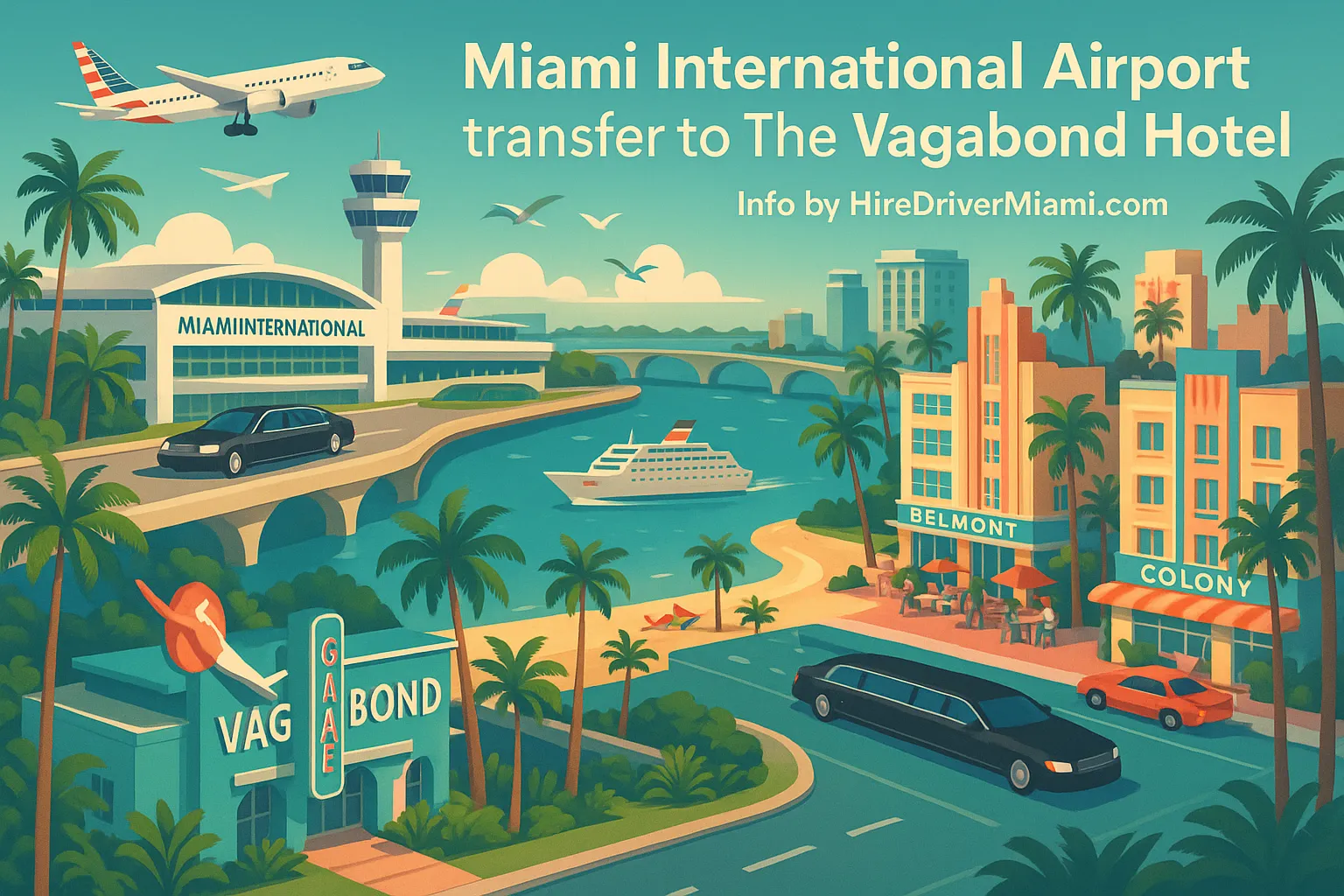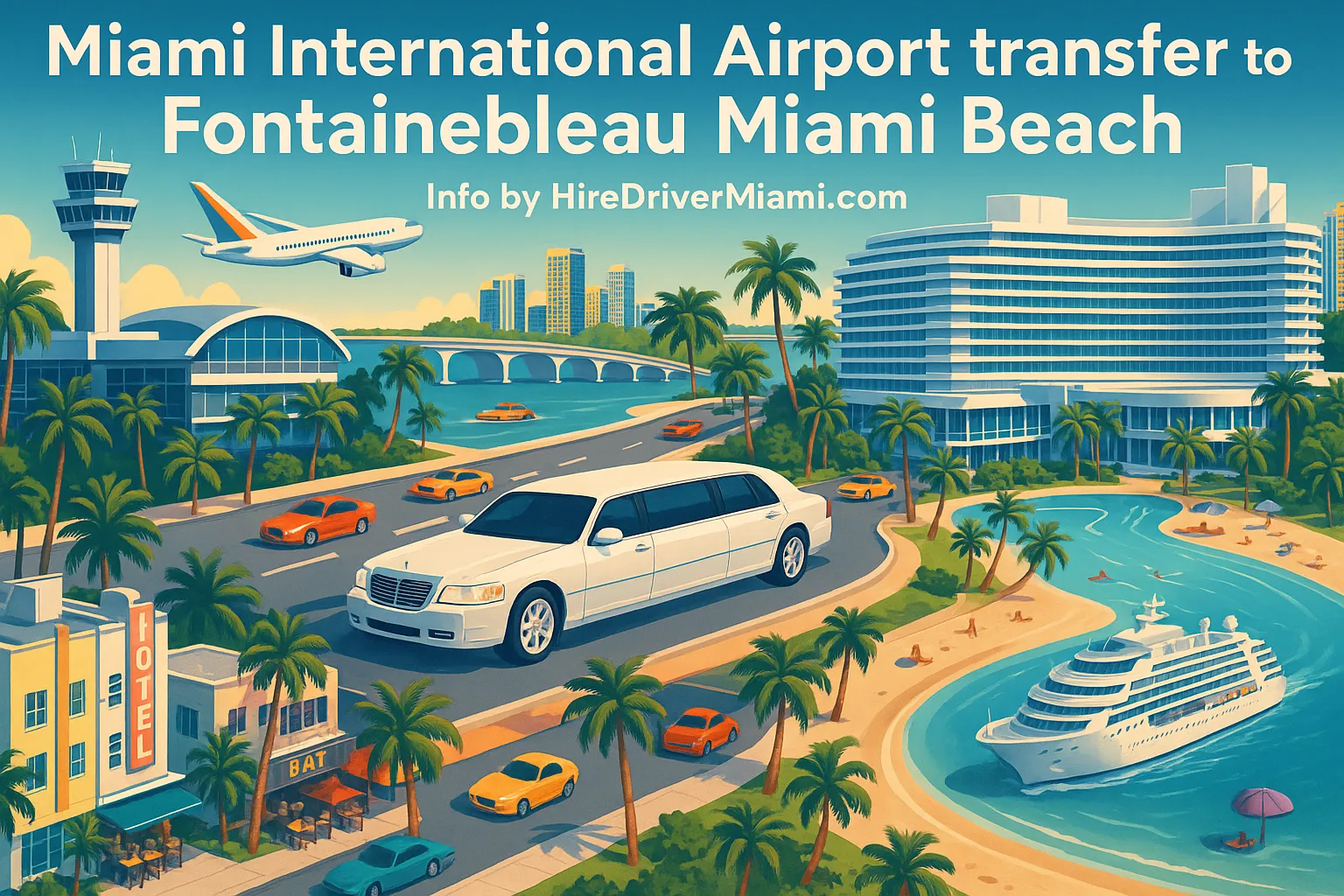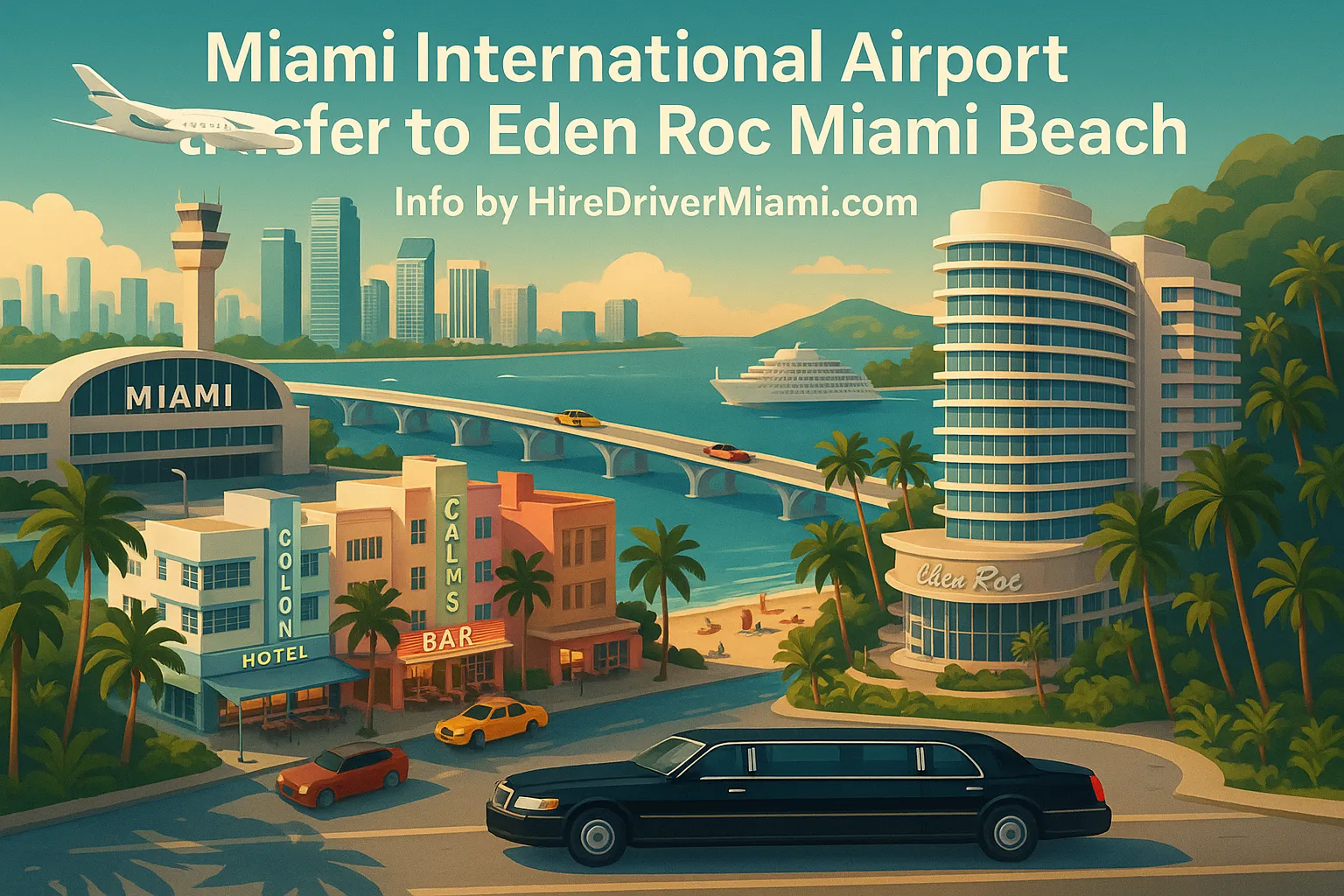My go-to guide: Miami International Airport transfer to The Vagabond Hotel
As a professional private driver who has shuttled business travelers, honeymooners, families with strollers, musicians with double basses, and VIPs between Miami International Airport and boutique hotels for more than a decade, I’ve driven the route to The Vagabond Hotel more times than I can count. In this first-person guide I’ll walk you through everything you need to know: typical travel times and distance, the best routes to take (and avoid), traffic patterns, the airport pickup and hotel drop-off experience, landmarks you’ll pass, and a few driver-only anecdotes — including one wow story that still makes me smile.
Quick summary (for travelers who want the essentials)
- Typical travel time: 15–35 minutes depending on time of day and traffic.
- Distance: roughly 8–16 miles from Miami International Airport (MIA) to The Vagabond Hotel (varies by routing).
- Typical routes: Le Jeune/State Road 953, SR-836 (Dolphin Expressway) + US-1 (Dixie Hwy), or I-95 for some parts of the city.
- Peak traffic: Weekday mornings (7:00–9:30 AM) and weekday afternoons/evenings (4:00–7:00 PM). Weekends have beach- and event-related surges.
- Why choose a private transfer: reliability, comfort, door-to-door service, fixed pricing, and local knowledge that saves time.
Where the numbers come from: distance and travel time
When people ask me, “How long from Miami International Airport to The Vagabond Hotel?” I say, honestly: it depends. Miami is a compact city geographically, but traffic can change your ETA dramatically.
- Distance: Most central boutique hotels in the Coral Gables / Coconut Grove / Brickell corridors sit between 8 and 16 miles from MIA. The actual mileage depends on which side of town The Vagabond Hotel sits and whether we use waterfront routes.
- Typical time ranges:
- Off-peak (late morning, early afternoon midweek): 15–20 minutes.
- Moderate traffic (midday or light event days): 20–30 minutes.
- Rush hour or event traffic: 30–45+ minutes — sometimes longer if there’s an accident or major event downtown.
As a rule, I always quote passengers a realistic window and build in extra time for Miami’s unpredictable spikes. That’s one of the advantages of booking a professional private transfer: we plan for contingencies so you don’t.
Typical traffic patterns to expect
Miami’s traffic rhythm follows the city’s life: finance in Brickell, tourists in South Beach and Wynwood, and locals commuting between suburbs and downtown. Here’s what I watch for:
- Morning commute (approx. 7:00–9:30 AM): Heavy inbound toward downtown, Brickell, and Coral Gables. If your flight arrives during this window, expect slower speeds on I-95 and SR-836.
- Afternoon/evening commute (approx. 4:00–7:00 PM): Congestion heading out of downtown and Brickell; the ramps to I-95 and SR-836 can back up.
- Friday afternoons/evenings: A major surge as people leave for weekend getaways or head to the beaches — allow extra time.
- Weekend trends: Saturday midday can be surprisingly busy around Wynwood, Design District, and Miami Beach. Sunday late afternoon/early evening is often the heaviest airport-bound period.
- Event days: Heat rises around game days (Miami Heat/FPL Arena) and big conventions — always check the local calendar.
Recommended driving routes (and why I choose them)
There are three main ways I typically take from MIA to hotels in central Miami neighborhoods. I choose the route based on current traffic, time of day, and the passenger’s preference (scenic vs fastest). Below are the routes with the pros and cons I explain to every rider.
Route A — Le Jeune/State Road 953 (local streets)
- Best when: Traffic on the expressways is heavy or if your hotel is in Coral Gables or near US-1.
- Why I like it: Shorter distance and more reliable when the expressways suffer backups. It’s direct, typically scenic in parts (you pass tree-lined residential sections and local shops), and avoids some highway stops.
- Drawbacks: More traffic lights and occasional slowdowns through commercial strips.
Route B — SR-836 (Dolphin Expressway) to US-1 / Brickell Avenue
- Best when: Off-peak hours and you want a fast, mostly freeway run.
- Why I like it: It’s usually the quickest way to cross the city east–west and drop down into Brickell, Downtown, or Coral Gables via US-1. The drive gives you a fast view of Miami’s skyline as you approach the bay.
- Drawbacks: Express lanes, construction, or accidents can add delays; express lanes may have tolls (drivers use transponders like SunPass).
Route C — I-95 (north-south) when heading toward downtown/Brickell
- Best when: Your final destination is downtown or north of Brickell and traffic is flowing on I-95.
- Why I like it: Direct access to the heart of the city; good for avoiding local street congestion when moving between neighborhoods.
- Drawbacks: I-95 can be unpredictable during rush hours and near construction zones.
Note: Tolls and express lanes sometimes make a difference — I’ll always check the live map and ask passengers if they prefer a toll-minimizing route or the fastest express option.



